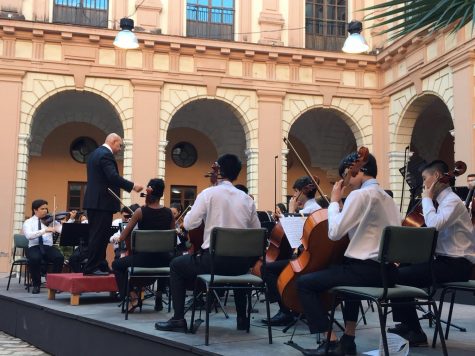It’s Time to Change Protected Period
We can have the best of both worlds by combining exam week with protected period.
The goal of protected period is to assess students without putting them under the enormous stress of an exam week, especially after a cold and dark term. According to Academic Dean Katherine Leggat, “Protected period has always been an integral part of Groton. It’s been here even before I arrived [in 1983].” However, many students believe that protected period is even more stressful than exam week. As Jack Sperling ’22 noted, “Protected period does more to protect the tests … than the student.”
This academic policy purports to safeguard Groton students’ wellbeing by limiting their major commitments to two per day. However, this rule does not differ from the rest of the school year. More importantly, this policy often results in students enduring a barrage of majors for several consecutive days, leaving them with little time to study or pause to take care of themselves between assessments. In fact, a recent Circle Voice survey of 108 students discovered that 61 percent of the student body prefers exam week to protected period.
Evidently, protected period has not served its purpose as an effective and less stressful form of final assessment.
Hypothetically, however, if Groton were to impose what is currently the only other evaluation option, exam week, two issues would arise. First, many teachers would be unwilling to lose four classes to exams, citing their inevitable inability to finish the year’s material in time. Secondly, imposing an exam week with two-hour long assessments would completely disregard Groton’s goal of alleviating students’ stress, thus nullifying the original goal of removing undue strain on the student body at the end of winter term.
Since both ends of the spectrum do not yield a satisfactory result, it’s time for Groton to look for a solution in the middle –– a hybrid of these two systems. The last week of winter term should have one major per day with its subject designated by the academic dean, just like exam week. In addition, students should have only three classes per day. This would maximize class time while reducing stress and keeping the scheduling of major commitments simple. With this system in place, students would complete their major commitments without excessive stress and teachers would be assured that no one is compromising academic integrity. Everyone wins.








